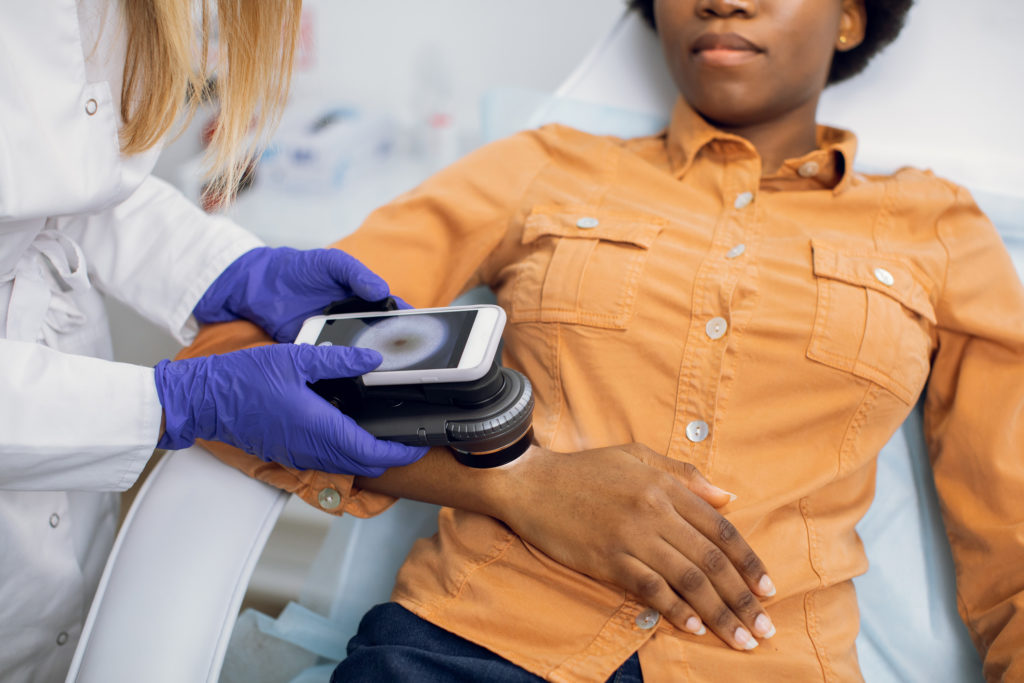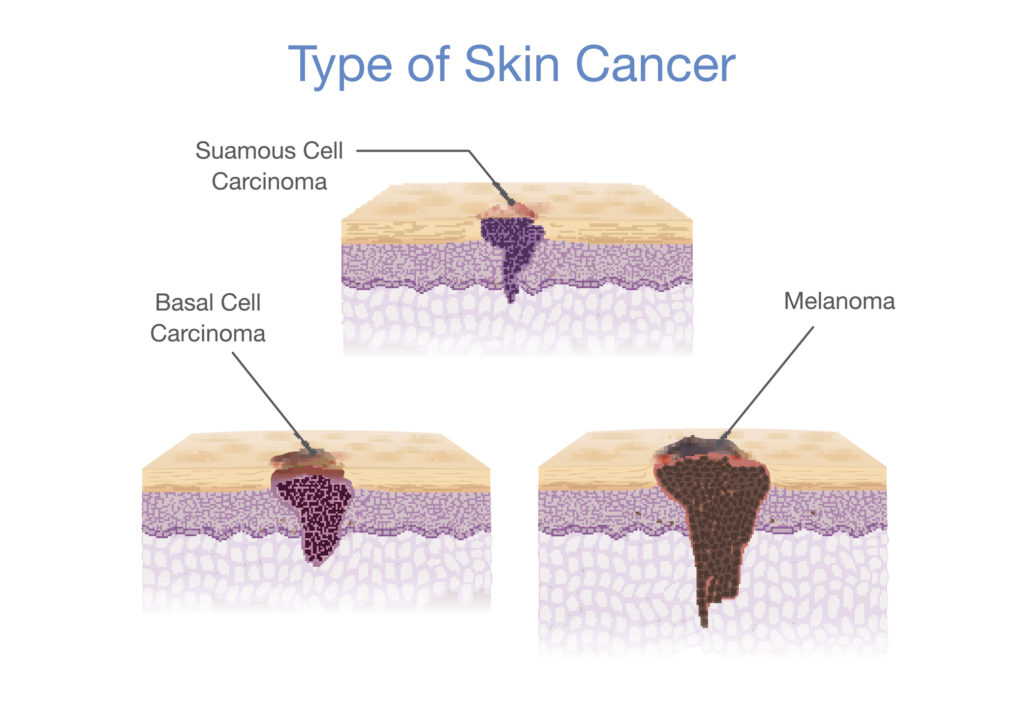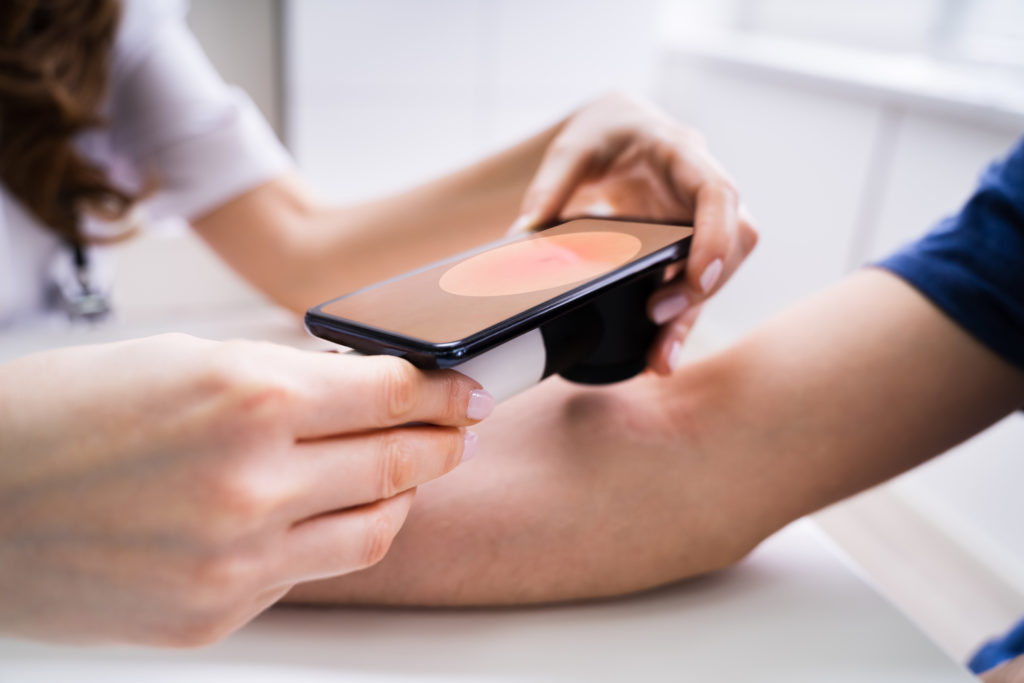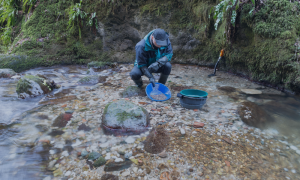
More than 3.7 million cases of skin cancer are diagnosed each year in the United States. And while it’s true that skin cancers are often treatable if caught early, the fact is that an estimated 9,000 people die from melanoma (the deadliest form of skin cancer) each year in this country.
The statistics for skin cancer in the UK are not dissimilar. In the UK, there are around 13,000 new cases of skin cancer diagnosed each year. This means that around 1 in every 16 people will be diagnosed with skin cancer at some point in their lives. And around 440 people die from skin cancer each year.
While many of these cases will be treatable if caught early, it’s important to remember that skin cancers can also be deadly. Clearly, then, detecting and treating skin cancers as early as possible is crucial to saving lives. Thankfully, there is a new technology that is helping us do just that: AI screening for skin cancer.

AI used for accurate skin cancer detection
There are many ways to screen for skin cancer. A dermatologist can examine your skin and look for signs of skin cancer. You can also have a skin cancer screening test, which may involve a skin biopsy.
Skin cancer screenings are important, but they can be expensive and time-consuming. AI screening can help to make skin cancer screenings more accessible and affordable. The use of artificial intelligence for the accurate detection of skin cancer has been found to be more successful than human detection.
In a study conducted by researchers at Stanford University, it was shown that an AI algorithm can be used to identify skin cancer with a high degree of accuracy. The study used 130,000 images of patients’ skin lesions to create a training dataset for the AI algorithm. The AI algorithm was then able to correctly identify skin cancer in 91% of cases. This shows that AI can be used to help detect skin cancer at an early stage when it is most treatable.
According to another study published in the journal JAMA Dermatology in 2018, artificial intelligence could detect melanoma lesions up to 91% of the time. The study found that a computer algorithm was able to outperform human dermatologists when it came to detecting lesions that were likely to be melanoma.
The algorithm used in the study was able to detect melanoma lesions by identifying certain patterns in the images of skin lesions. The algorithm was also able to differentiate between benign and malignant lesions with a high degree of accuracy.
CNN – the future for skin cancer detection
In recent years, artificial intelligence (AI) has been used more and more to help with the early detection of various types of cancer. For example, a study published in 2020 in the journal PLOS showed that a deep convolutional neural network (CNN) can be used to more efficiently detect skin cancer.
Researchers created a system based on CNN to analyze wide-field images of patients’ skin in order to detect cancer more efficiently. The study involved training a CNN on a dataset of images from patients with skin cancer and images from patients without skin cancer. The CNN was then able to accurately distinguish between the two groups of images. This suggests that AI may be able to play a role in the early detection of skin cancer.
A study conducted at Thomas Jefferson University and the University of Florida demonstrated the AI performance using an uncurated set of 1,422 sequential skin biopsies. The system achieved a sensitivity of 93%, specificity of 91%, and positive predictive value of 97%.
The high sensitivity means that the AI rarely missed detecting a melanoma. The high specificity means that the AI rarely flagged a mole as cancer when it was not. The positive predictive value of 97% means that, of all the moles the AI said were cancer, 97% of them actually were.
This is important because many skin cancer screening tools, like the ABCDEs of skin cancer, have low specificity. This means that they often lead to biopsies of benign moles, which can be painful, expensive, and anxiety-inducing.
The study found that the AI system was able to detect melanomas with high accuracy, even when they were mixed in with other types of skin lesions.
How can AI screening can help doctors detect skin cancer
There is a lot of excitement around the potential for artificial intelligence (AI) in the field of dermatology. This high accuracy rate is due to the ability of AI to learn and remember patterns. It can identify suspicious lesions on the skin and then compare them to a database of images to determine if they are cancerous or not.
Not only can AI detect skin cancer, but it can also help to determine its severity and whether it has spread to other parts of the body. This technology is still in its early stages, but there is already evidence that it can be used to improve the outcomes for patients with skin cancer. In a study published in JAMA Dermatology, it was found that using AI to screen for skin cancer led to a 15 percent decrease in mortality rates.
Studies have shown that artificial intelligence (AI) can help us detect skin cancer at an earlier stage. A study published in the British Journal of Dermatology found that AI was able to detect melanoma with a 99% accuracy rate. This study used machine learning to analyze more than 2,000 images of skin lesions.
These studies demonstrate that AI can be a valuable tool for detecting skin cancer. With its high accuracy rates, AI can help us catch melanomas at an earlier stage when they are easier to treat. If caught early, the five-year survival rate for melanoma is 99 percent.

The future of AI in skin cancer detection and treatment
The future of AI in skin cancer detection and treatment is looking very bright. The use of AI for skin cancer detection is a promising development that has the potential to save many lives. Early detection is key to successful treatment, and AI has been shown to be more accurate than human experts in detecting skin cancer. AI screening for skin cancer is a promising new technology that can help us detect and treat the disease in its early stages.
It is important to note that artificial intelligence prediction models for skin cancer are not just limited to detecting the disease, but can also be used for a variety of other purposes such as:
- Determining the severity of the cancer
- Predicting whether the cancer has spread to other parts of the body
- Determining which treatments will be most effective for a specific patient
- Helping doctors make more informed decisions about surgery or chemotherapy
The use of AI in the field of dermatology is still in its early stages. However, the potential for this technology to improve the outcomes for patients with skin cancer is very exciting.
Early detection is critical for the successful treatment of skin cancer. AI screening can help to make skin cancer screenings more accessible and affordable. It can also improve the accuracy of skin cancer diagnosis.
With the ever-growing field of AI, it is clear that we will see even more advancements in the detection and treatment of skin cancer in the future.





